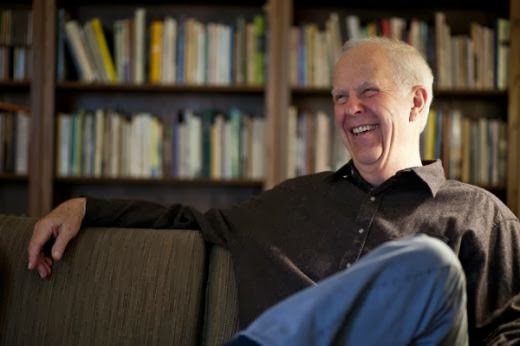“Jesus talks a great deal about the kingdom of God -- and what he means by that is a public life reorganized toward neighborliness.” (Brueggemann)So, to return to our question, what happened with Jesus and those thousands in that deserted place?
Neighborliness happened.
Neighbors gather, community happens, and abundance flourishes. That’s the kingdom – the kin-dom -- of god Jesus was talking about: public life reorganized toward neighborliness. A crowd of people in the grip of scarcity thinking had gathered to hear Jesus teach. They had secreted away for their own use food for themselves. Under the influence of this remarkable teacher, they began to open up, began to sense the intrinsic abundance of the life they breathed, and the universe in which they swam. From that sense of boundless provision welled up an urge to share of this manifest plenty of which they were suddenly so acutely aware. From the bottoms of bags and folds of clothes came forth food to share. From the divinity within them, the divinity that is always there, lying too-often unnoticed, came forth this food.
So, yes, it came from God – from Goddess, from Buddha nature. It came from God, which we call by many names, one of them being neighborliness.
As Parker Palmer exegetes:
“The disciples, asked to feed the crowd, are sure that food is scarce; Jesus performs a ‘miracle’ to reveal how abundant food is even when there is none in sight. In this story, as throughout his active life, Jesus wanted to help people penetrate the illusion of scarcity and act out of the reality of abundance.”Parker Palmer relates this story about the miracle of abundance in community, the kin-dom of God that is realized in neighborliness. Palmer was a passenger on a plane that pulled away from the gate, taxied to a remote corner of the field and stopped.
The pilot came on the intercom and said, “I have some bad news and some worse news. The bad news is there’s a storm front in the west, Denver is socked in and shut down. So we’ll be staying here for a few hours. That’s the bad news. The worse news is that we have no food and it’s lunch time.”
Everybody groaned. Some passengers started to complain. Some became angry.
“Well,” Palmer said, “what happened next was amazing. The griping stopped. People started to root around in pockets and handbags, some got up and opened their suitcases stored in the overhead luggage racks and got out boxes of candy, a salami, a bottle of wine. People were laughing and talking. She had transformed a group of people who were focused on need and deprivation into a community of sharing and celebration. She had transformed scarcity into a kind of abundance.”
After the flight, which eventually did proceed, Parker Palmer stopped on his way off the plane and said to her: “Do you know there’s a story in the Bible about what you did back there? It’s about Jesus feeding a lot of people with very little food.”
“Yes,” she said. “I know that story. That’s why I did what I did.”
Unitarian Universalists know that story too. We Unitarian Universalists have fashioned a wiser understanding of the miraculous. The uninterrupted causal nexus of history and nature is replete with the miracle of community – the miracle of abundance.
One more illustration of this point is the illustration that comes from a congregation's members. It’s the miracle that Unitarian Universalists enact every time we agree to serve on a committee, every time we help out cleaning up the grounds, every time we teach an RE class, every time we fill out a pledge form.
Everybody puts in, and everybody takes out.
It’s a wonderful, awesome miracle of the creation of community and thereby the creation of abundance.
* * *
This is part 5 of 5 of "The Myth of Scarcity"
Previous: Part 4.
Beginning: Part 1.





